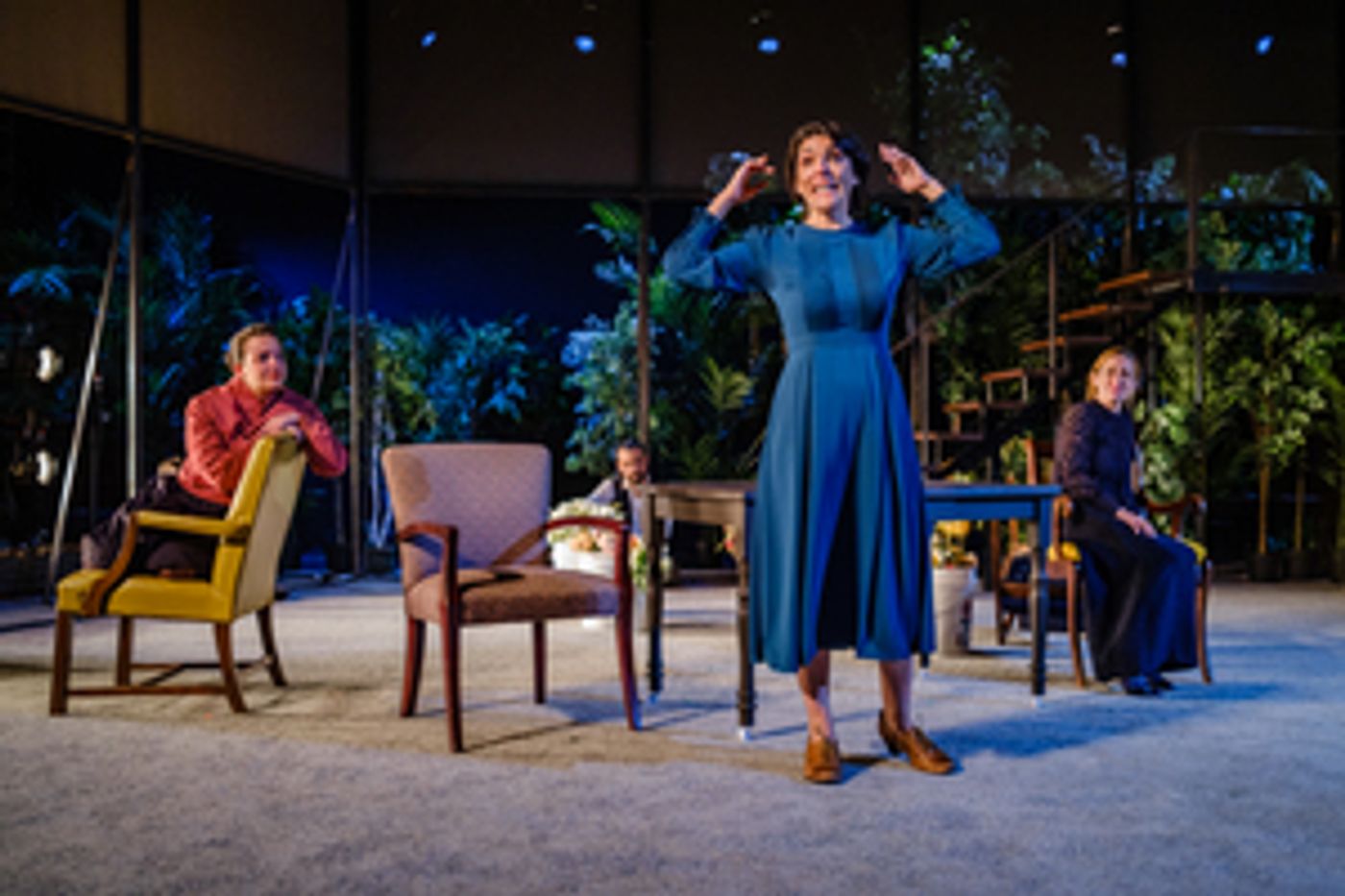Review: Doña Rosita la soltera at Gala Hispanic Theatre
GALA's 46th season opens with excellent Lorca

Led by the masterful Mabel del Pozo in the title role and Luz Nicolás as her aunt, GALA Hispanic Theatre has mounted a nuanced and visually rich production of Federico García Lorca's 1935 play, Doña Rosita la soltera, adapted by Nando López. Like the fourth play of Greek tragedy cycle, Doña Rosita. . . lightens the world of Bodas de sangre,Yerma, and La casa de Bernarda Alba while fitting in with Lorca's focus in the early 1930s on the depiction of the not-much-better-than-medieval status of women in Spain in the late 19th and early 20th centuries. At least the Spanish word soltera is closer to the root for "alone/single/solitary/solo" and doesn't consign unmarried woman to a profession associated with and relegated to a cottage industry. (Doña Rosita the Spinster is the English title of the play. Remember all the trouble caused by spinning wheels in literature; not you, Rumplestiltskin: Gretchen, groomed by Faust, and that Sleeping Beauty.) Lorca's subtitle for the play, El lenguaje de las flores (The Language of the Flowers), signals that poetry, especially metaphor, will dominate his toolkit for this script rather than the turmoil and violence of its three sister plays.
Rosita is in love and engaged when the play begins around 1885, and when it concludes around 1911, she's Doña Rosita la soltera. No spoilers. She may be single, but she is never outwardly on her own. Her dominant but supportive aunt always has her back no matter what the fiancé is doing; her impractical but loving uncle schools her in the language of the flowers and grows and provides them; and the household has a housekeeper who keeps everybody in one piece by functioning as if she were the love child of Cinderella's fairy godmother and Aladdin's genie. Friends and acquaintances visit; people sing around the piano (their a cappella music surpasses the recorded material "designed" by David Peralto and Alberto Granados); life happens. But when Rosita speaks, Lorca gives her poetry to reveal her pain and solitude as well as her awareness in later years that some of her suffering is self-chosen.
Del Pozo maps Rosita's inner life with both restraint and power; her face always reflects Rosita's thoughts no matter what custom or social practice has got her body doing. As Rosita's tía, Luz Nicolás has to evolve from a prosperous and outgoing woman in her prime to a less emotionally certain person in difficult circumstances, and Nicolás makes that shift with aplomb.
Supporting Nicolás and del Pozo is a quartet of gifted players who render a dozen or so characters. Delbis Cardona plays several men, one of whom might have been a suitor of Rosita, and Cardona never met a piece of furniture that he could not move as if he were partnering it in a ballet. Catherine Núñez has just the right energy for the women who seem less fragile than Rosita because they do not take love as seriously as Rosita does. Ariel Texidó, playing both Rosita's tío and her fiancé, poignantly explains, as the former, the life cycle of the rosa mutabile (the flower which so resembles Rosita herself), and then, as the latter, gracelessly mansplains why he can't marry her just yet; Texidó vivifies the difference between the two men. Doña Rosita. . . is not the sort of show which has show-stoppers. But Laura Alemán nearly causes one; the voice of reason in Act I, El ama (the housekeeper) becomes in Act II the conscience of Spain. Alemán's portrayal of loyalty, optimism, and grace under pressure is perfect.
Silvia de Marta's sets and costumes give the Doña Rosita. . . company a beautiful matrix. De Marta can change a decade with a hem length, a vest, and a pair of shoes. And El tío's lush garden disappears the Tivoli space. Directing with duende, José Luis Arellano helps the actors to shift fluently between Lorca's ensembles and solos. (Jesús Díaz Cortés' variegated lighting underpins these shifts.) At no time does anyone sacrifice Lorca's poetry; as in Shakespeare, what the characters say must never be overpowered by what the audience sees. This is such stuff as Helen Hayes Awards are made on, and Arellano won one (along with Del Pozo, de Marta, and adapter López) for GALA's 2015 production of Lorca's Yerma. Arellano's work has the clarity and balance of Michael Kahn and the theatrical intelligence of Peter Brook.
English-speakers, cuidado; unfortunately, GALA's placement of the projected text in your language on both sides of the stage rather than above it will force you to make awful decisions. When film and TV use subtitles and opera uses surtitles, audience members can keep the frame in view while reading the translation. Having to move the eyes to the side means missing images, so just try not to get stuck reading for too long. Know that this cast skillfully thinks in a universal language eloquent enough to mitigate your lack of Spanish.
Running Time: One Hour and 40 minutes including intermission.
Doña Rosita la soltera runs through October 3, 2021. For tickets, info, and COVID-19 protocols, visit www.galatheatre.org or call 202 234.7174.
Reader Reviews
Videos

